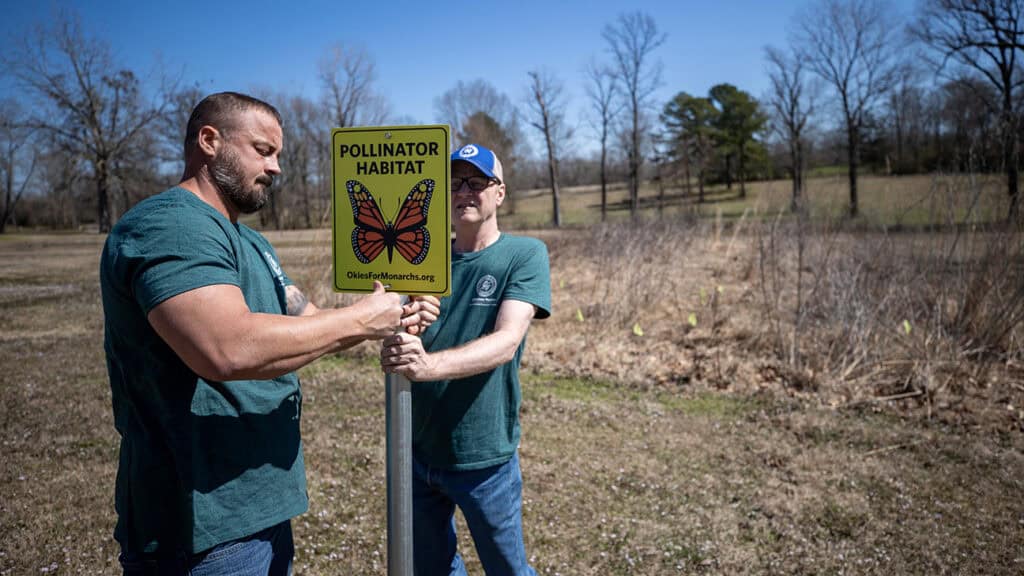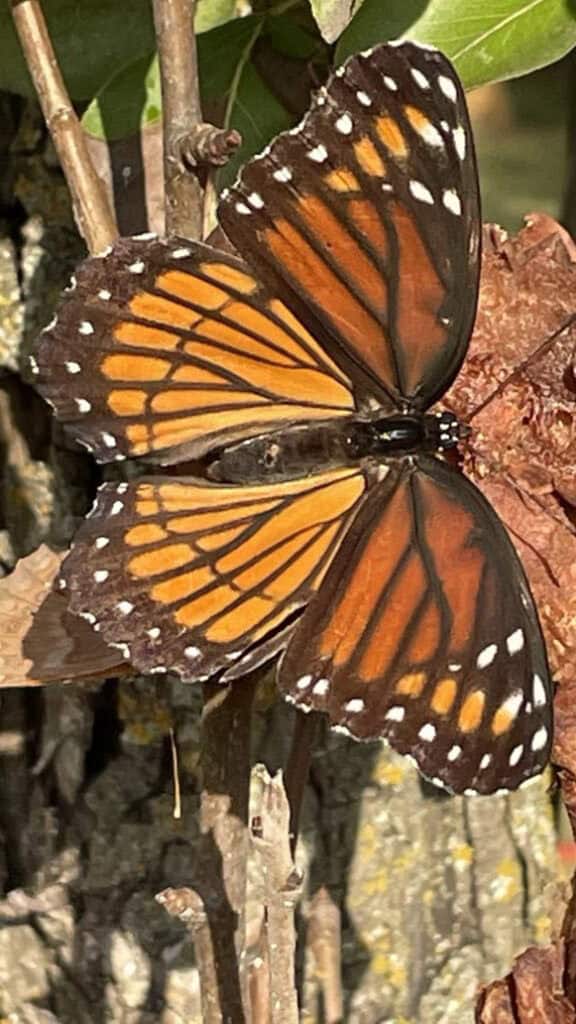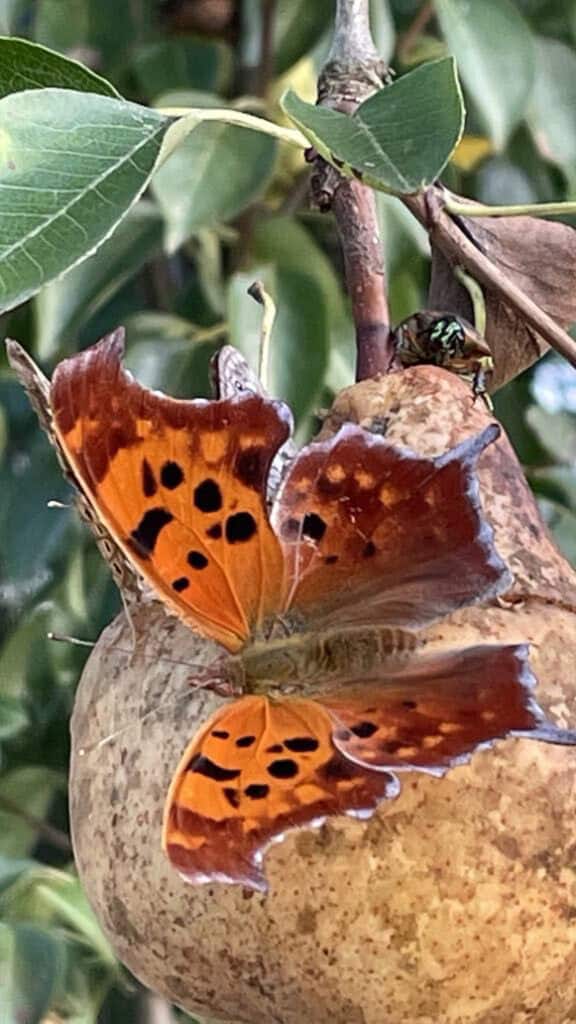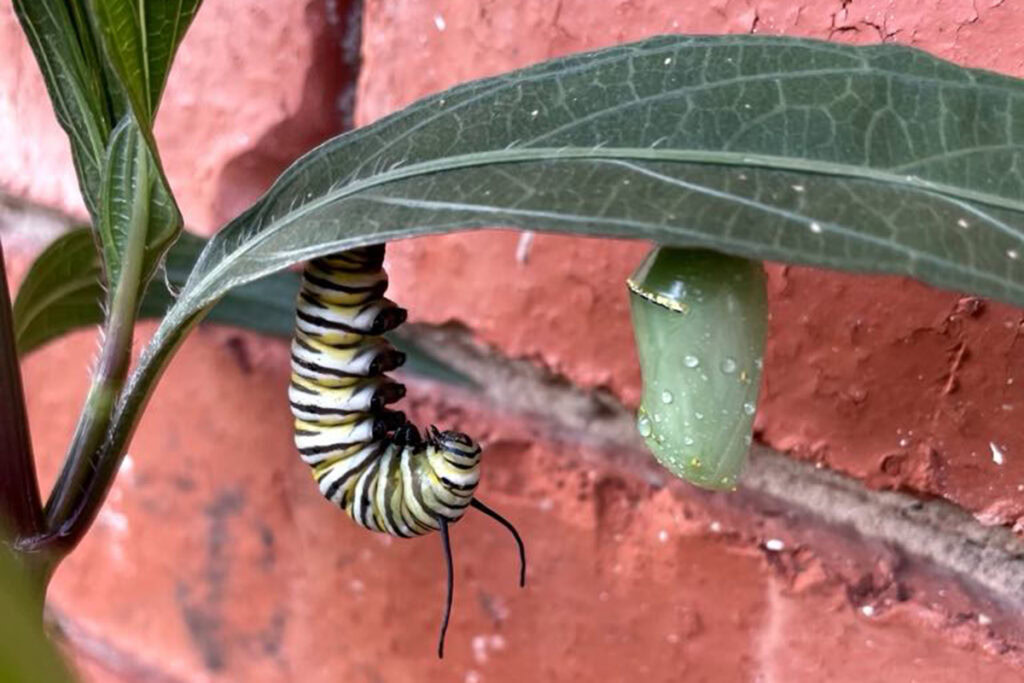
The Choctaw Nation is diligently working to conserve wildlife and preserve the ecosystem within the reservation. However, these efforts extend much further than southeastern Oklahoma; they impact the entire content of North America.
While Oklahoma native grassland may seem insignificant, it plays a crucial role in the ecosystem. Native plants and flowers are vital for pollinators.

A pollinator can be a butterfly, beetle, bee, wasp, ant, moth, hummingbird, bat or even a small mammal. As their name suggests, these creatures carry pollen from the male part of a flower to the female part, enabling the plant to reproduce. This transfer is a vital life stage for all flowering plants and essential for healthy ecosystems.
According to the U.S. Fish and Wildlife Service website, many foods, beverages, fibers, spices, and medicines we use daily wouldn’t exist without pollinators.
The U.S. Department of Agriculture (USDA) website states that three-fourths of the world’s flowering plants and about 35 percent of the world’s food crops depend on animal pollinators for reproduction.
Many of these pollinators are struggling to survive.
According to the USDA, habitat loss, disease, parasites, and environmental contaminants have all contributed to the decline of many species of pollinators, and there aren’t enough pollinator-friendly plantings to support them. If pollinators keep declining, this could pose a real problem for many food supplies we enjoy today.
The Choctaw Nation has already started planting pollinator gardens in the reservation and hopes to help combat the declining pollinator numbers.
Steve Anderson, an environmental coordinator with the Choctaw Nation’s Environmental Protection Service (EPS), helps oversee the pollinator garden at the Wheelock Academy historic site.
According to Anderson, this is currently the only official pollinator garden within the reservation, but the EPS aims to plant pollinator gardens in every district of the Choctaw Nation.

Anderson’s team worked closely with the Tribal Alliance for Pollinators (TAP), a non-profit organization focused on restoring and creating habitats for pollinators. TAP has provided many seeds for the Wheelock Academy pollinator garden.
According to Anderson, it was critical to plant native plants in these gardens instead of introducing new species. Some familiar names of the plants in the pollinator garden are big bluestem, swamp milkweed, buttonbush, bee balm, tall goldenrod, frostweed, slender mountain mint, American basket flower and false indigo, among others.





These photos are from Anna Marcy’s pollinator garden in Durant, Oklahoma. Marcy has seen many butterflies and other common and uncommon pollinators through her garden.
The Monarch Butterfly is one of the most unique and vital pollinators that will visit the garden. According to the National Wildlife Federation (NWF), Monarch butterflies are found across North America wherever proper habitat exists. These brightly colored butterflies are divided into the eastern and western populations, separated by the Rocky Mountains.
They are one of the few migratory insects, traveling astounding distances between summer and winter habitats. In the summer, they range as far north as Canada. In the fall, the eastern population migrates to the high mountains of central Mexico, and the western population migrates to coastal California, where they spend the winter.

Unfortunately, this vital pollinator is struggling to survive.
According to the NWF, the monarch population has declined by approximately 90 percent since the 1990s.
The NWF also states that monarchs face habitat loss and fragmentation in the United States and Mexico. For example, over 90% of the grassland ecosystems along the eastern monarch’s central migratory flyway corridor have been lost, converted to intensive agriculture or urban development.
The Choctaw Nation’s pollinator garden is a vital stop for the monarchs on their migratory journey.
That is why this garden has also been designated as a Monarch Sanctuary.
The designation is part of the Okies for Monarchs program, developed by the Oklahoma Monarch Society. Okies for Monarchs is a statewide group of 40+ organizations and citizens working together to ensure thriving Monarch migrations for generations to come.
The Choctaw Nation’s EPS works closely with Okies for Monarchs to ensure that monarchs can continue to thrive.
As more pollinator gardens are planted within the Choctaw reservation, these will serve as both pollinator gardens and be designated as Monarch sanctuaries.
Anyone who wants to get involved with the efforts to help pollinators, can plant their own pollinator garden.
The NWF, U.S. Fish and Wildlife Service, and Okies for Monarchs all have information on their website to help you develop a garden of plants that best feeds the local pollinators in your area.